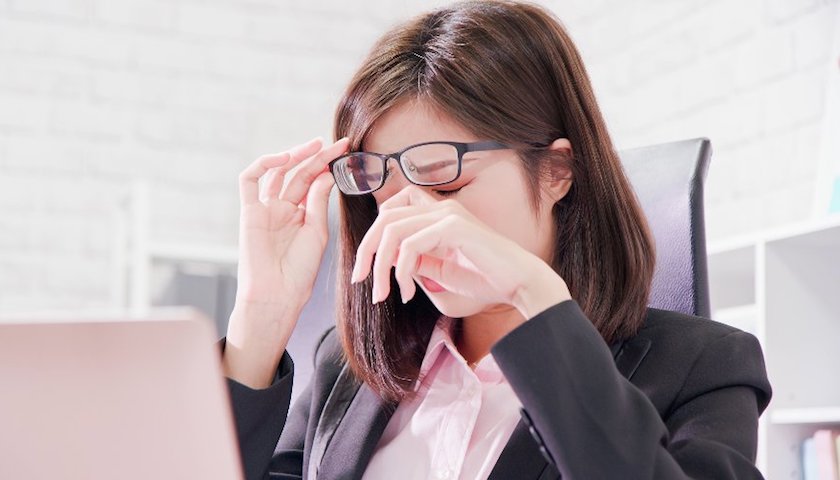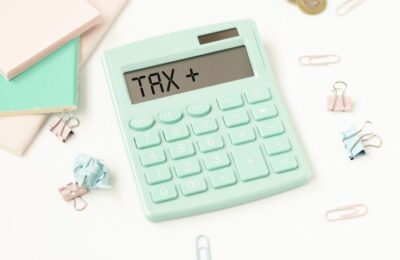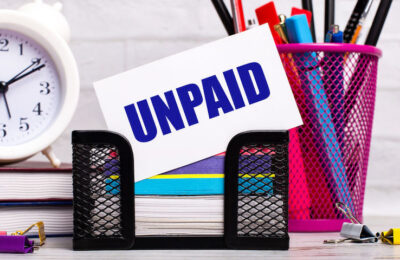A while ago I went and got my eyes tested for the first time in two years. For some reason (i.e. age), my right eye was having trouble focusing on text. The optician agreed, so I ordered two pairs of frames to be made up to my new prescription. I also came away with a question I’d not considered before: are glasses tax deductible?
A trip to the optician
If you wear spectacles, you’ll know how a visit to the opticians works. You arrive. You get checked in. An optician appears and asks you to put your head in an array of machines. These dazzle you or puff air in your eyes, or you sit down with a remote control and click every time you see a wavy blur in your peripheral vision. You also get a picture of the back of your eye (the small hole in mine is apparently healing itself – that surprised the optician quite a lot!)
After that, you get the traditional eye test. You get to look at dots and letters and the optician swaps lenses until he or she finds the ones you need.
Once you get your new prescription, you get handed over to a dispensing optician. These people are extremely good salespeople. Even if you intended to get new lenses put into your old frames, the chances are you’ll walk out with two pairs of designer frames and a bank account that’s several hundreds of pounds lighter.
However, I digress. Dispensing opticians are also the people who measure up the lenses for your new frames. They also tend to chat quite charmingly during the process, as I rediscovered yesterday.
Me: “I’d like the anti-reflective coating on both sets of lenses, please.”
Optician: “Good idea. Do you use screens a lot?”
Me: “Yes, a huge amount. I write for a living.”
Optician: “Ah. Maybe you could claim the eye test and some of the glasses back from your employer?”
Me: “I’m self-employed, so I’d be claiming back from myself.”
Optician: “Maybe you could claim back against tax?”
Me: “I’ve never thought of that. I’ll have to look into it.”
So, I looked into it. This is what I discovered.
Claiming the cost of glasses from employers
If you an employee and you use display screen equipment (DSE), your employer must provide you with (and pay for) an eyesight test if you ask for one. They can either send their DSE users to a nominated optician, or they can agree to reimburse you if you visit your own optician.
If you need glasses, your employer only needs to pay for them if you are prescribed special glasses for the distance your screen is viewed at. Your employer is only obliged to pay for a very basic cost of frames and lenses. So if you opt for expensive or designer frames, you’ll need to pay the extra costs.
It’s worth emphasising that employers only need to pay for frames and lenses when you need a special prescription specifically for DSE use. If you just need an ordinary prescription, your employer doesn’t need to pay.
Are glasses tax-deductible for the self-employed?
If you’re self-employed, the first thing to note is that an eye-test is not an allowable business expense. So keep an eye out for those free eye-test offers that crop up from time to time!
If you need glasses, they will normally not be tax deductible. This is because in most cases, the glasses and lenses have ‘duality of purpose’. In other words, you’ll probably wear them for both personal and business purposes.
That said, if you use the glasses purely for work purposes, you could argue that they are a business expense and claim back the cost against tax. Personally, I would hesitate to do this – I can’t begin to imagine how I’d prove to the taxman that my specs were used solely for work.
What about claiming via my limited company?
If you are a director of a limited company, eye tests are an allowable expense against corporation tax (as are the eye tests of any employees). However, this is only the case when someone uses a DSE for at least one hour per day.
If your glasses are needed solely for business purposes, you can claim them back against tax. But remember you’ll need to be able to prove this.
On the other hand, if you use the glasses for both business and personal purposes, you may be able to claim a proportion of the cost back against tax. If you do this, the glasses become a taxable benefit. This means you’ll need to fill out P11d forms and pay Class 1a NI contributions. We can advise you on this in more detail.
Be careful if you claim glasses against tax
As you can see, the rules for claiming the costs of eye tests and glasses depend on whether you’re an employee, self-employed or a company director. As someone who’s self-employed and who wears varifocals all day long, I couldn’t convincingly argue my glasses are solely for work use. So, I won’t be claiming. However, if you’re thinking of claiming back the cost of your eyecare and you’re not sure whether you can, please do get in touch with your account manager. They’ll be delighted to help you.
About Ben Locker
Ben Locker is a copywriter who specialises in business-to-business marketing, writing about everything from software and accountancy to construction and power tools. He co-founded the Professional Copywriters’ Network, the UK’s association for commercial writers, and is named in Direct Marketing Association research as ‘one of the copywriters who copywriters rate’.












